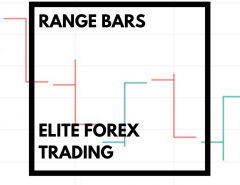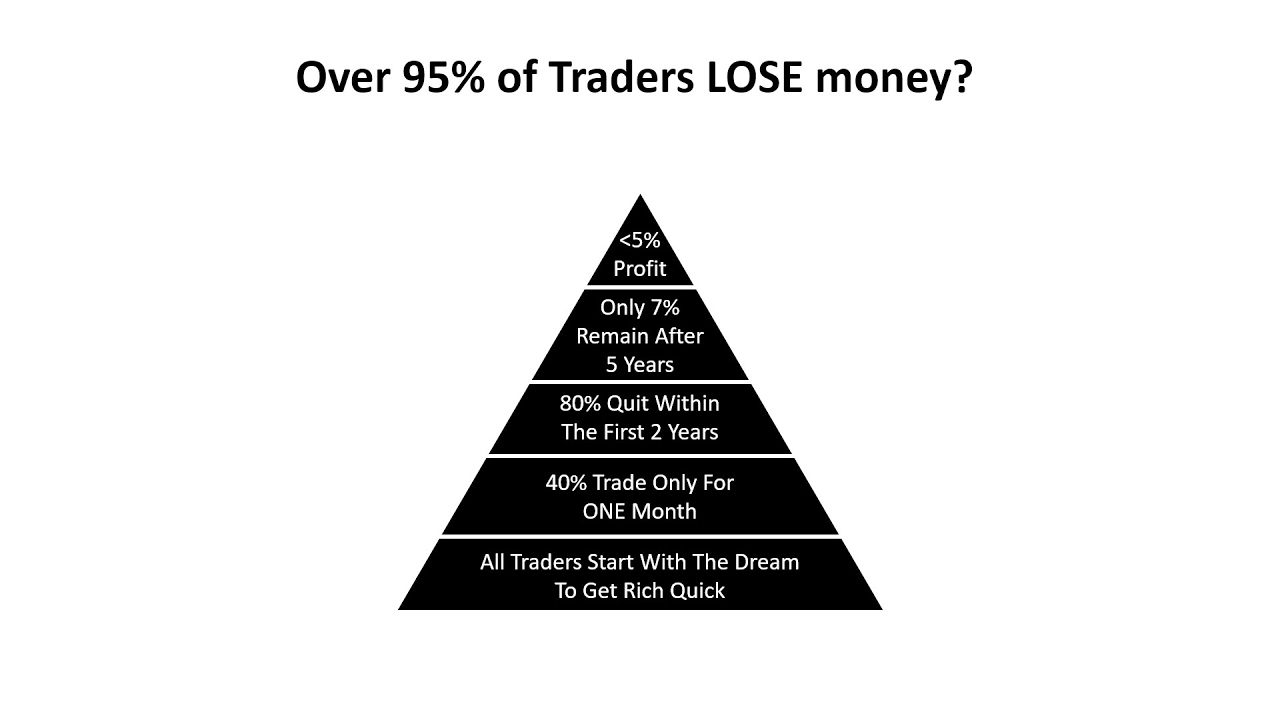 Data shows that 95% of people who start trading, whether that’s currency or stock trading will lose money. It’s sad but it’s true and It’s even backed by general statistical data too. For example 95% of Americans will not be financially secure by the time they retire – That’s SECURE not even successful!
Data shows that 95% of people who start trading, whether that’s currency or stock trading will lose money. It’s sad but it’s true and It’s even backed by general statistical data too. For example 95% of Americans will not be financially secure by the time they retire – That’s SECURE not even successful!
In this post I’m going to break down exactly why this happens and the reasons behind this from a psychological point of view.
Table of Contents
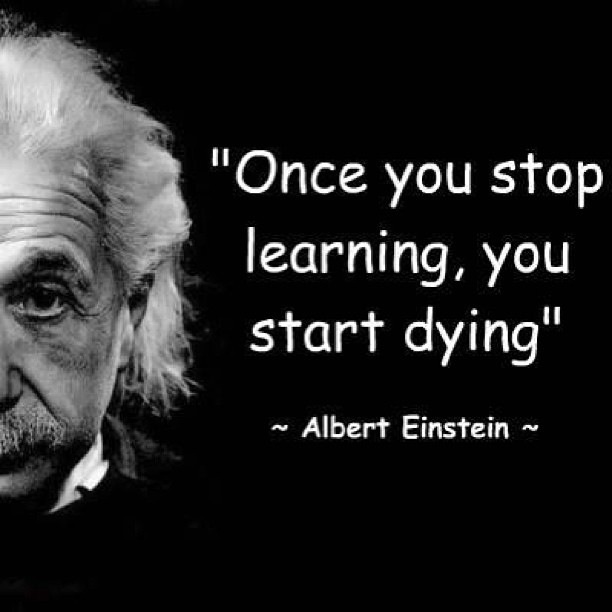 1.) Participation Not Anticipation
1.) Participation Not Anticipation
I had a read of this style post on vantagepoint and although there were a few elements I agreed with there were also some I disagreed with.
One of the most common reasons people fail and quit trading is because they participate in the market, they do not anticipate.
AKA they follow what the market is doing and assume nothing will change.
If you look at the previous crashes of the past 50 years you can see this in almost every crash.
People do not do their own research and the market or the economy and as a result they lose a lot of money (95% of people lost money between 2008-2010…)
But the people who independently did their research and market analysis found that there was no value in property, that a crash was imminent and hence did not buy anything. They also sold everything they had too.
Once the market had crashed and started to recover, they took back everything at a discount.
What a beautiful strategy.
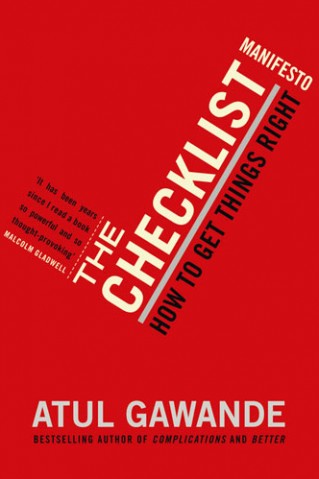 This is how a large majority of people made 7-9 figures even during a crash. They were smart and did independent research. Not relying on other people, sticking to their core checklists.
This is how a large majority of people made 7-9 figures even during a crash. They were smart and did independent research. Not relying on other people, sticking to their core checklists.
There’s a great book called the checklist manifesto that outlines exactly how to build checklists and the importance of them in business, investing, medicine & even construction and architecture. A very good read for anyone feeling overwhelmed or like they need to sort through their processes. Building a simple checklist before investing in a company is INSANELY powerful. And its so simple to run through (takes a while to build though.)
Before you invest in anything you should be willing to do hours and hours of research and find out everything you need to know about that specific stock, business, currency or asset.
There’s a lot of people who simply dive into the market based on the direction it is going, hence participating in the market instead of anticipating the moves.
You should analyse independent of what everyone else is doing.
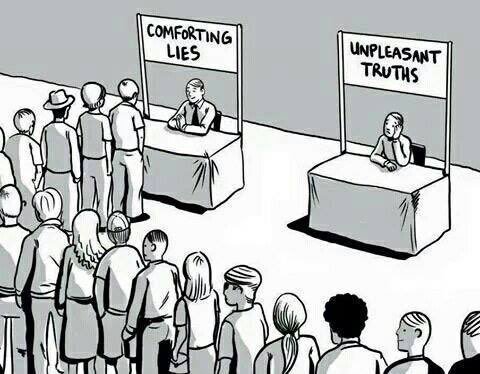 Most people want to here comforting lies instead of unpleasant truths. This is exactly the same in trading.
Most people want to here comforting lies instead of unpleasant truths. This is exactly the same in trading.
If I told you the following, would you buy our course and implement it?
We make between 30-50% a year. At the start working 10 hours a day analysing the markets, building software, algorithms and investing £100,000 upfront. From there we then had to hire someone to analyse the markets when we were asleep/outside of the office.
Now if you do the same (10 hours a day including weekends for about a year) you can make potentially 40% on your money per year.
Oh and nothing is guaranteed. You will also need £100k in start-up capital. And you will likely not be good enough after a year anyway.
Not exactly the best sell in the world is it?
But it’s mostly true.
We’re trying to streamline the entire process and even managed to do it with the FFP course, but for most people it will take a year before you are fully integrated into all strategies.
But anyway we are getting off track.
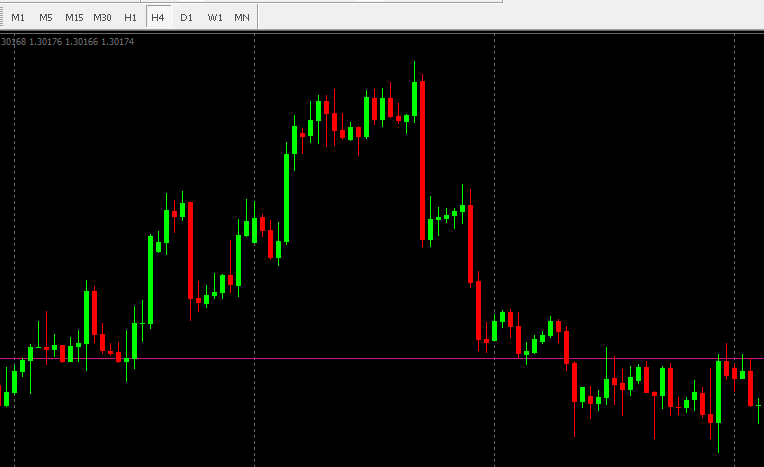 Analyse On Your Own
Analyse On Your Own
Analysing the markets should be something you do alone.
I’m not saying you shouldn’t learn HOW to do this before, of course you need to know how to do it before you dive straight into the markets.
But, when you actually sit down to think about a market you should do so based on your own specific analysis and not what a guru or others on a forum say. If you do this then you are a.) Leaving your wealth decision up to others and more importantly b.) You are not actually learning a skill – All you are doing is copying someone else’s ideas. That’s not the way to build a business and remember forex trading should be a business.
Anticipate The Market & Make a “decision”
What I see a lot of people in the industry doing is making a decision once the market has passed. “Oh I thought this would move up to 1.31 within a few days… And it did.
This is called CONFIRMATION BIAS and will lose you a lot of money.
Confirmation bias is simply when you imagine a theory and only see the results you want, then you draw the imaginary conclusion back to your theory and why this happened. This essentially puts you into a trance of only seeing profitable potential trades you “would have taken” and forgetting about the ones that lost or giving them small amount of weight.
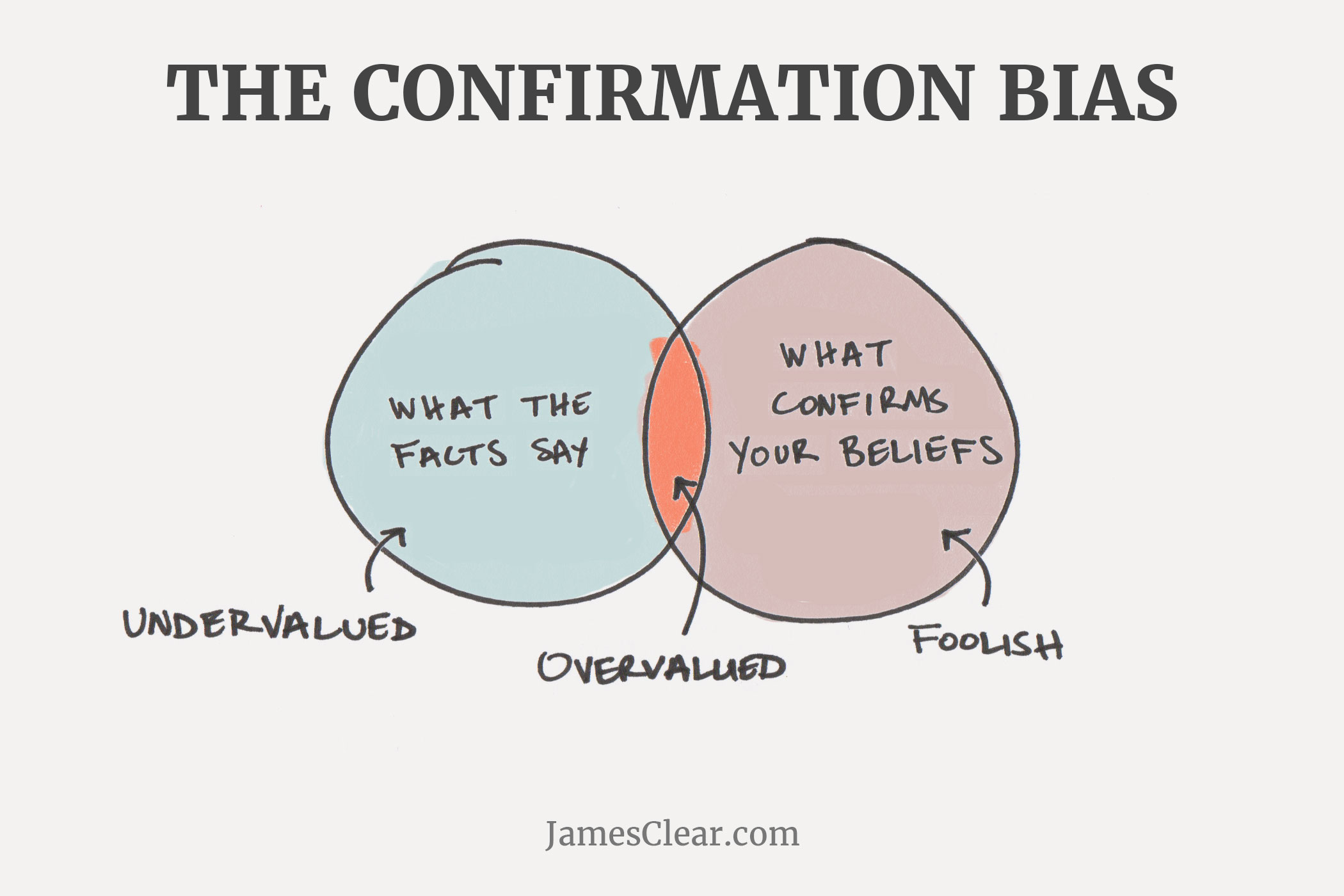
If you start taking trades and the first few profit, then your confirmation bias becomes incredibly dangerous as you get the “I cannot lose” trading feel. We’ve all been there when we think we have the next strategy to make 100% a month but the truth is we can’t. Don’t fall into confirmation bias otherwise you will fall into the 95%.
Inside use the live markets and actually write down a prediction, I like to just use an excel document with a few titles and then write down all the current information, why I would have taken the trade, the date and time of entry, reason for entry, stop loss, take profits, position size etc.
When you actually write these steps down you not only force yourself to make this trade seem real, you actually can track whether you are falling for confirmation bias or not.
Make 100 trades like this and review each one if it were a real trade.
Review the market after the fact and think about if you made a mistake or were “unlucky”.
What was your timing like?
Did the market continue going in a specific direction?
And the golden question that most people get wrong – “Should I have placed this trade?”
Now this is a tough question for one key reason.
Even if you profited on a trade – That doesn’t mean you should have made this trade!
This could have been luck or your reasoning behind it was just plain wrong.
Analysing pre and post trade – Even if the trade is imaginary will give you the confidence to pull the trigger for real money when you get to the point where you have some actual real results from your specific theories and strategies.
2.) Crowd Theory
Crowd theory is a concept based on how people act differently when they are in groups or “crowds” – The definition is below.

In trading crowd theory relates to simply doing what everyone else is doing.
It’s incredibly easy to see where crowd trading is in a market. When people are shouting about a specific currency direction you should be very aware and careful. As Warren Buffett Says:
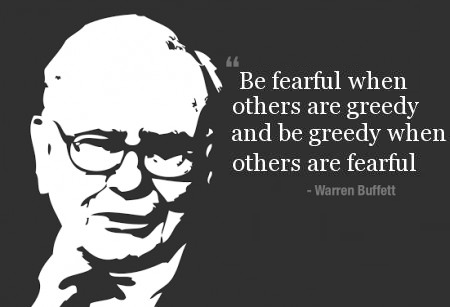
This is especially true when it comes to trading for beginners. If you try to follow the crowds, even if the direction is going the right way, things will turn around. Just look at the people getting into cryptocurrency in the last few weeks. They’ve missed the boat for now, that’s not to say there won’t be another opportunity but it is not right now.
Newbie traders usually follow others, most of the time they are following people who are just claiming to be good traders, there is no proof of long term ROI and most of the time they are rubbish traders anyway that preach things to try to sell course, consulting, coaching or something else to unsuspecting people.
Be very very careful who you: a.) Spend time with – This is something I live by now. If you are negative or even if you are not driven, I will not be spending time with you and b.) Follow – Following people who are simply making up bad information or not actually providing you with any value is a quick way to lose a lot of money!
3.) Lack Of Patience
Another issue I see far to often is the lack of patience one.
People think you can from a full time job working 9-5. Learn “forex trading” and sit on a beach and work 2 hours a day within 3 months. To these people – If it were possible wouldn’t everyone be doing it? Never forget that when you think if something seems too good to be true.
Now I will say that if you already have a certain level of knowledge and skill inside of forex trading (which if you are reading this post you don’t) then this is possible but 3 things have to be in place.
- Knowledge & Skill of trading – Understanding the markets better than 99% of people, as well as building out a strategy that is semi-automated. Not automated as in robot trading, but instead automated in your mind so you know what to look for when specific set-ups and price action occurs.
- Starting bankroll – Assuming 5% a month you’d need at least £5k/month so that’s a £100k starting capital.
- Time – You will need time to trade. If you have a full time job you will have to be committed in the 5 hours after you finish each day or the 5 hours before you go to work!
Having patience is key to learning any new skill and that’s all forex trading is, it’s just a set of skills we utilise to make money from the currency markets.
I can’t really emphasis patience anymore but having patience in all elements of trading is key.
- Individual trades – If the trade isn’t a perfect set-up, leave it.
- Education & Knowledge – It will take thousands of hours to get to a certain level, don’t try rush it.
- Expectations & Earnings – 50% a month? Not going to happen with correct bankroll management. Aim for 5% and trust the process.
4.) Play To Small – Commit 100%
A lot of people play the forex game too small.
They don’t fully believe in themselves and hence they do not go all in. I don’t recommend putting any savings into a forex account. But assuming your entire life savings, house, car, assets, business or job, children’s college funds etc was inside a trading account and you could just withdraw it, you had to trade. I’d be willing to bet you’d be a lot more careful where you put your money and do a lot of research prior to each and every trade set-up you did.
Commit 100% when you start.
If you are not willing to put (whatever it is to you) a huge amount of money into a trading account, then you are not ready to actually start trading.
Trading is not gambling, of course there are risks involved but there are also rewards that far exceed these risks when it is done properly.
As I mentioned above a trait of the 95% is to not fully commit to something.
This also comes back to the patience point as well. When you try to rush something, whether that’s building wealth, getting fit or even getting into bed with someone – It will always turn out bad.
If you learn the specific set of skills, methods and concepts behind why each one of these things happens and how to reverse engineer it then you will be a lot more successful.
Conclusion
All the points above develop a profile of a person who lacks the correct mindset and psychology of trading. Having an investment mindset as soon as you start is essential, anything less and you will be leaving money on the table.
If you have any of the traits mentioned above then I would highly recommend removing these from your entire life, let alone just trading. Crowd theory for example is very common with people who are unsuccessful.
If you are new to Forex trading and need further advice, we suggest you download a copy of our free Forex Trading PDF, or read our guide to Forex Trading for beginners.

Tom is the owner of Elite Forex Trading. A website that provides beginner tips, trainings, reviews and strategies to help newbies get started making money in the forex markets.



